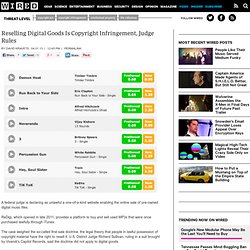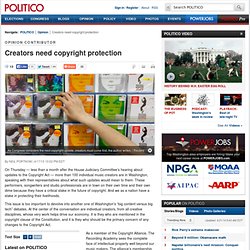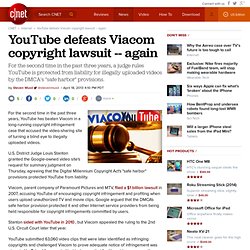

Intellectual property weekly abstracts bulletin. The interplay between digital media and the first sale doctrine. Proposed parody exception to copyright infringement. Cof Appeal overturns High Court decision in Interflora v M&S. Counterfeit clothing found at Toronto, Oshawa clothing stores. Reselling Digital Goods Is Copyright Infringement, Judge Rules. A federal judge is declaring as unlawful a one-of-a-kind website enabling the online sale of pre-owned digital music files.

ReDigi, which opened in late 2011, provides a platform to buy and sell used MP3s that were once purchased lawfully through iTunes. The case weighed the so-called first-sale doctrine, the legal theory that people in lawful possession of copyright material have the right to resell it. U.S. District Judge Richard Sullivan, ruling in a suit brought by Vivendi’s Capitol Records, said the doctrine did not apply to digital goods. Saturday’s decision (.pdf) comes as online retailers such as Amazon and even Apple have patented platforms for the reselling of used digital goods such as books, music, videos and apps. “The novel question presented in this action is whether a digital music file, lawfully made and purchased, may be resold by its owner through ReDigi under the first sale doctrine. Prices for songs vary on ReDigi, whose future is in doubt under Sullivan’s ruling.
Sign o’ the Times: Twitter gets a Vine copyright complaint from. Reselling Digital Goods Is Copyright Infringement, Judge Rules. The Pirate Bay Becomes #1 File-Sharing Site as Cyberlockers Collapse. The Pirate Bay is now the most-visited file-sharing site on the Internet, taking over the lead from prominent one-click hosting sites such as 4Shared and Mediafire.

After a spectacular rise in the early years of this decade cyberlockers are quickly losing ground, while BitTorrent sites continue to grow. This shift in balance can be attributed to the Megaupload shutdown, and the changes in the cyberlocker market that followed. Less than two years ago we published an overview of the most used file-sharing sites, covering both BitTorrent and traditional cyberlockers. Phelps & Phillips, LLP.
Opinion: Creators need copyright protection - Neil Portnow. On Thursday — less than a month after the House Judiciary Committee’s hearing about updates to the Copyright Act — more than 100 individual music creators are in Washington, speaking with their representatives about what such updates would mean to them.

These performers, songwriters and studio professionals are in town on their own time and their own dime because they have a critical stake in the future of copyright. And we as a nation have a stake in protecting their livelihoods. This issue is too important to devolve into another one of Washington’s “big content versus big tech” debates. At the center of the conversation are individual creators, from all creative disciplines, whose very work helps drive our economy. It is they who are mentioned in the copyright clause of the Constitution, and it is they who should be the primary concern of any changes to the Copyright Act. Continue Reading Creators should receive fair compensation for their work when it is exploited. YouTube defeats Viacom copyright lawsuit. For the second time in the past three years, YouTube has beaten Viacom in a long-running copyright infringement case that accused the video-sharing site of turning a blind eye to illegally uploaded videos.

U.S. District Judge Louis Stanton granted the Google-owned video site's request for summary judgment on Thursday, agreeing that the Digital Millennium Copyright Act's "safe harbor" provisions protected YouTube from liability. Viacom, parent company of Paramount Pictures and MTV, filed a $1 billion lawsuit in 2007, accusing YouTube of encouraging copyright infringement and profiting when users upload unauthorized TV and movie clips. Google argued that the DMCA's safe harbor provision protected it and other Internet service providers from being held responsible for copyright infringements committed by users. Stanton sided with YouTube in 2010 , but Viacom appealed the ruling to the 2nd U.S. Google welcomed the ruling, calling it a victory for all Internet users. Viacom v. YouTube ruling is a bummer for Google and the UGC community. After five years in the courts, the Viacom International, Inc., v.
YouTube, Inc. litigation has finally produced an appellate opinion. The result is a loss for Google/YouTube and the user-generated content (UGC) community generally. While the court largely agrees with many of YouTube's contentions (and the ruling of the lower court), it nevertheless revives the litigation, ensuring that Google will spend millions of dollars more over the coming months and years. Furthermore, the opinion identifies at least four "holes" in 512(c) coverage that future plaintiffs will surely attempt to exploit: smoking-gun internal e-mails, willful blindness, right and ability to control, and content syndication.
This ensures that other UGC websites will spend a lot of money upfront to try to shut down those holes and spend even more money in litigation to demonstrate that it avoided those holes. You Shouldn't Need a Copyright Lawyer to Pick a Dentist.
Copyright protection under the DMCA “safe harbor” provision affi.